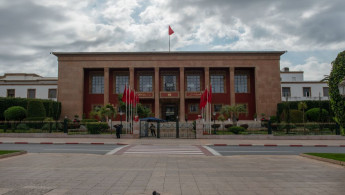Morocco's ruling party faces wave of resignations over 'drifting principles'
Idris Al-Azmi, the head of the National Council of the party in Morocco, announced his resignation from the presidency of the council and the general secretariat of the party, citing what he called a deviation of its values on which he was raised.
"I have decided to submit this resignation because, unfortunately, I no longer tolerate nor comprehend, nor can I explain or accept what is happening within the party, and I cannot," the letter read.
"No matter the difficulty of this decision, it will not be matched by the size of the confusion and questions that are raised every time and remain unanswered about the suitability of the party's positions with its declared and well-known principles, its reference papers, its basic systems and its electoral programs."
"Are we really still us?" Al-Azmi asked, calling on the party to renew its approach and question the leadership itself before it is too late.
He appointed his deputy undertake to the task of coordinating the work of the office and council.
Meanwhile, Morocco's human rights minister Mustapha Ramid submitted his resignation, though he claimed it was due to his deteriorating health.
Ramid, who suffers from diabetes, had threatened on more than one occasion to submit his resignation and had been absent from multiple cabinet meetings.
Sources close to Ramid told Arabi 21 on condition of anonymity that the minister has suffered from number of diseases for some time, which prevented him from pursuing his governmental duties.
Earlier in February, MP Abouzaid el Mokrie el Idrissi froze his membership of the party after criticising what he called a recent "catastrophic" shift in its values under Saad Eddine el-Othmani. He was referring to Morocco’s normalisation with Israel in December, which critics called a betrayal of the Palestinians.
Meanwhile on Thursday, Morocco "began to study a legislative bill relating to the legal use of cannabis" for medical purposes, the government said in a statement.
The draft text, seen by AFP, envisages the creation of a "national agency to regulate activities linked to cannabis".
The growing, sale and consumption of cannabis are currently strictly forbidden.
But usage is largely tolerated in the north, where the livelihoods of between 90,000 and 140,000 people is estimated to depend on illicit production.
Follow us on Facebook, Twitter and Instagram to stay connected





 Follow the Middle East's top stories in English at The New Arab on Google News
Follow the Middle East's top stories in English at The New Arab on Google News
![The UAE is widely suspected of arming the RSF militia [Getty]](/sites/default/files/styles/image_330x185/public/2024-11/GettyImages-472529908.jpg?h=69f2b9d0&itok=Yauw3YTG)
![Netanyahu furiously denounced the ICC [Getty]](/sites/default/files/styles/image_330x185/public/2024-11/GettyImages-2169352575.jpg?h=199d8c1f&itok=-vRiruf5)
![Both Hamas and the Palestinian Authority welcomed the ICC arrest warrants [Getty]](/sites/default/files/styles/image_330x185/public/2024-11/GettyImages-2178351173.jpg?h=199d8c1f&itok=TV858iVg)